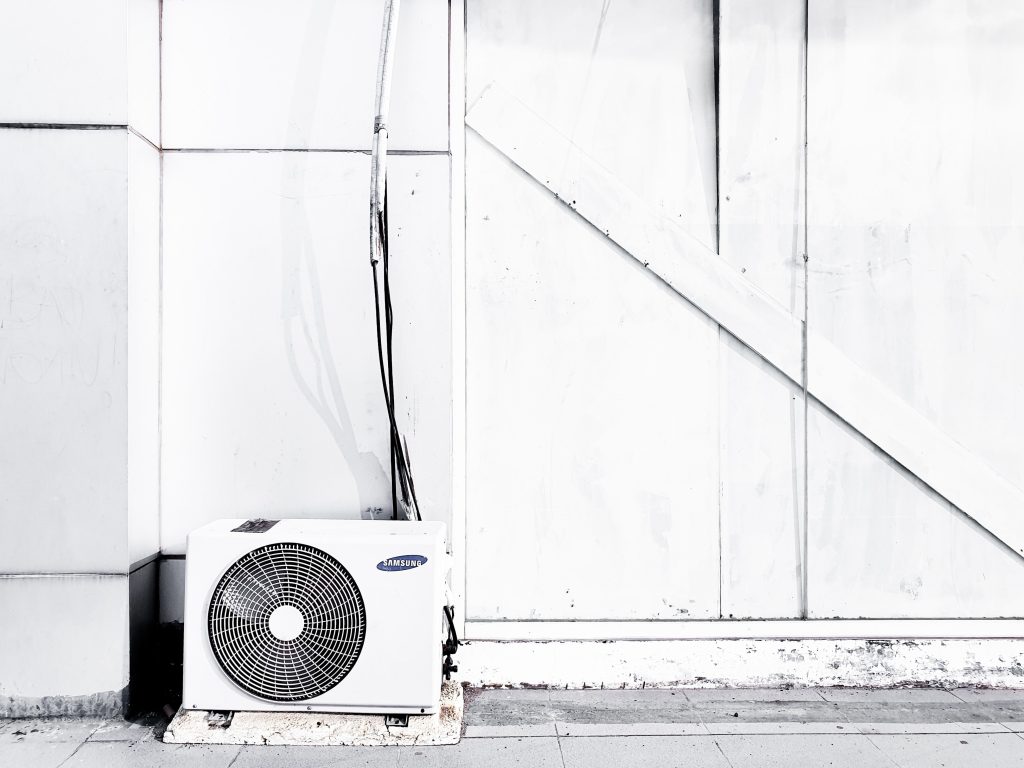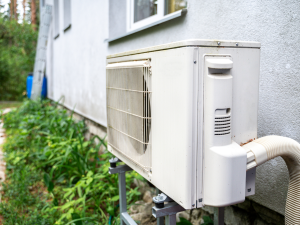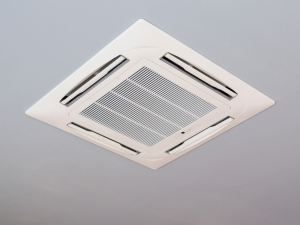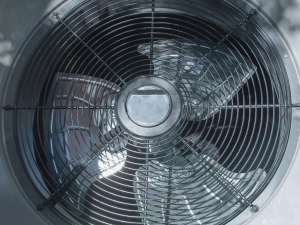Heating and cooling are among the largest recurring expenses in any home, so how can you reduce costs without sacrificing your comfort?
When it comes to cooling, specifically, there are a variety of things you can do if you are wondering how to make your air conditioner more efficient. By keeping your unit clean and removing any blockage from the air vents, you already give your AC unit the best chance at quickly cooling your space. For central AC units, keeping the drain line clear goes one step further.
In this article, we’ll go into more detail about how to increase home AC efficiency. By the time you’re done reading, you should have a solid understanding of what you need to do to maintain your AC units.
Keep Your Units Clean
By keeping your AC units clean, you prevent dirt and other particles from getting stuck inside the vents. When there’s a blockage in the vent, the unit has to work harder to release cold air into your home.
For outdoor units, cleaning is much simpler than you’d expect. To thoroughly clean dust, dirt, and debris off of your outdoor unit, follow these steps:
- Disconnect the power. Before you begin, it is important to disconnect the power to ensure your safety.
- Remove the screws and panels. Use a drill to take out all screws holding the panels in place and then take off the panels.
- Clean the AC fins. This step requires the use of a soft bristle brush or a spray hose. Brushing should be done in up and down motions, while spraying with a hose should be done at an angle from the top.
- Put the panels back on. This step should be completed in reverse order from how you took the panels off. Don’t tighten the screws completely until all of the panels are back on the unit.
- Turn the power back on. Once everything is put back together, you can reconnect power. If you cleaned it thoroughly, you should see a more efficient flow of air.
For window units, you need to remove the filter and clean it at least once a month. After putting the filter back in place, use a washcloth and spray cleaner to wipe down the rest of the unit. Next, you need to clean the fins inside of the unit and the coils by using a fin comb or soft bristle brush. Clean out the drain pan too before reassembling the unit.
Check The Vents for Blockage
This method goes hand-in-hand with the cleaning process. While cleaning, you should look out for any debris creating a blockage in the AC vents. If there’s a blockage, carefully remove it so air can adequately flow through the system.
Turn up The Thermostat
It’s usually recommended to adjust your thermostat up and down 5 F to 8 F during the summer and winter. Doing this helps save both money and energy. Most modern air conditioning units have the option for you to program your thermostat to change temperatures during various times of the day.
It may be beneficial to take advantage of programmable temperature settings because it gives you one less thing to worry about throughout the day.
Keep Heat Away From The AC
For the AC unit to do its job, it detects warmth in your home and draws cooler air in to regulate temperature. If you have heat-producing items placed near the unit, you aren’t going to get an accurate reading and the AC will spend more time trying to cool down the area.
It’s also helpful to keep curtains and blinds closed during the hottest times of day to minimize the amount of heat from the sun getting into your home. As well, you may want to refrain from using the oven or stove during these times to avoid contributing to the home’s internal temperature.
Keep The Drain Line Clean and Clear
The indoor cooling coil for your home air conditioner is usually located right above the furnace, either in your basement or utility closet. To clear out the line, you can pour one cup of chlorine bleach down the line and flush it out with one gallon of water.
Keeping the drain line clear is not only cost-efficient, but it’s also effective as a preventative measure for keeping your basement from flooding.
Replace Old Units
Window AC units have a typical lifespan of 8 to 10 years, while central air units that are installed outdoors will last 10 to 15 years. AC units that are older may have difficulty maintaining a consistent temperature due to age. If that’s the case for you, you may need to replace your old air conditioning unit.
Reset the Thermostat if Needed
If you notice you’re paying more than you should be, there may be a disconnect between your AC system and your thermostat. If you notice incorrect temperature readings, temperature fluctuations, or spikes in your utility bills, it’s likely that you need to reset the thermostat. In most cases, a simple reset will get your system working again. However, further issues should be taken care of by a professional AC technician.
Parting Thoughts: How To Make Your AC More Efficient
Increasing your home AC efficiency is important for saving energy and money. By making sure your AC unit is clean and by regularly changing the filter, you ensure the unit can easily let air flow through and keep your home consistently cool.
Now that you know how to make an air conditioner more efficient, you’re well equipped to apply what you’ve learned here in your home.




